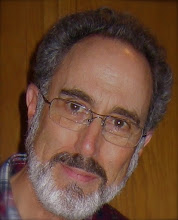 In my short story, Double Blind, the father of Jason, the boy afflicted with non-Hodgkin lymphoma, is a senior optomechanical engineer from CALTECH, who is fascinated with something called Bell’s Theorem, which is described in the story as, "a highly esoteric mathematical proof showing that if the statistical predictions of quantum theory are correct, then some of mankind’s commonsense ideas about the world are profoundly mistaken."
In my short story, Double Blind, the father of Jason, the boy afflicted with non-Hodgkin lymphoma, is a senior optomechanical engineer from CALTECH, who is fascinated with something called Bell’s Theorem, which is described in the story as, "a highly esoteric mathematical proof showing that if the statistical predictions of quantum theory are correct, then some of mankind’s commonsense ideas about the world are profoundly mistaken."In our perception of physical reality, action on one particle of a widely separated entangled pair cannot instantaneously alter the physical state of the faraway partner particle. This “locality” is a condition requiring the value assigned to an operator associated with an individual particle or constituent of a composite system to be independent of what is measured on any other particle or constituent. More simply, locality is the principle that an event which happens at one place can not instantaneously affect an event someplace else. But John S. Bell, a staff member of the European Organization for Nuclear Research (CERN) proved otherwise in a ground-breaking paper published in 1964.
Several years after quantum mechanics had been developed, Einstein, Poldolsky, and Rosen published a paper showing that under certain circumstances quantum mechanics predicted the breakdown of locality (the 1935 paper has become known by the initials of its authors, EPR). Bell later proved this to be the case and locality ceased to exist -- what happens somewhere in space-time can instantaneously affect what happens somewhere else in space time. Einstein called this “spooky action at a distance,” and indeed, it is.
So Bell's Theorem is real. Why did I include it in the story? Because something happened to Jason during his wanderings in the shrub stepp that cannot be explained within our common understanding of reality. We just can't accept the idea that Jason's encounter in the shrub steppe could be the result of "entangled particles," one effecting the other simultaneously in space-time. But there's clearly a lot about "reality" that we know very little about.

